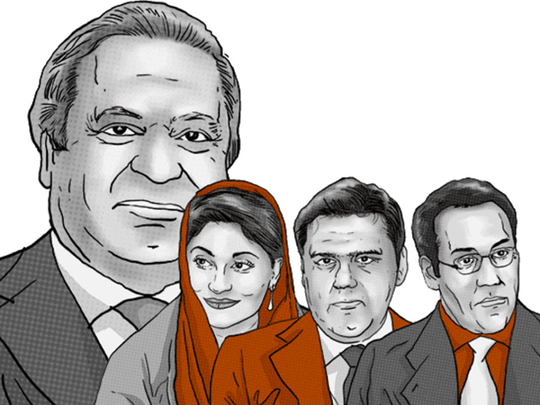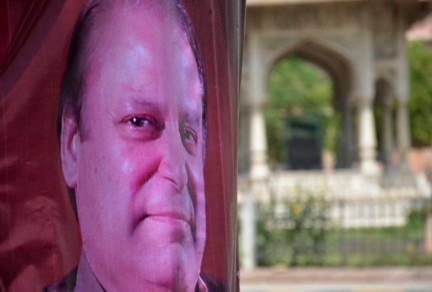
Islamabad: The wait is finally over in Pakistan where all eyes are turned toward the Supreme Court, which will announce its highly anticipated decision in the Panama Papers case on Thursday April 20, 2107, at 2pm local time.
According to the Panama Papers, eight secret offshore companies have links with the family of Prime Minister Nawaz Sharif and his brother, Shahbaz, who is the chief minister of Punjab.
The scandal continues to haunt Pakistan’s government, primarily the Sharif family.
It is one of the most controversial and significant cases in Pakistan’s judicial and political history.
The much-awaited decision of the case, which was reserved on February 23, 2017, will be announced by a five-member larger bench, headed by Justice Asif Saeed Khan Khosa, and comprising Justices Ijaz Afzal Khan, Gulzar Ahmad, Shaikh Azmat Saeed and Ijazul Ahsen.
“The court will announce its verdict in accordance with the law and the Constitution,” Justice Khosa had remarked.
It all began in April 2016 with a huge leak of 11.5 million financial and legal records documents from the database of a Panama-based law firm, Mossack Fonseca, which rocked governments and exposed politicians, celebrities, businessmen and criminals worldwide.
The papers lifted the lid on a system that enables siphoning of funds, tax evasion and corruption, through a network of secretive offshore companies.
How case unfolded in Pakistan
PM Nawaz Sharif and his family came under fire at home, with opposition parties accusing them of widespread corruption.
Sharif’s three children — Maryam, Hasan and Hussain — were owners of offshore companies registered in the British Virgin Islands and used them to buy properties in London, according to the Panama Papers.
Due to mounting pressure, PM Sharif vowed in his April 22, 2016 speech that he will resign and “go home if found guilty” in the Panama Papers probe.
Sharif later announced a plan to form a judicial commission to investigate the offshore firms owned by members of his family.
“We are not afraid of anything and present ourselves for accountability,” PM Sharif told Parliament.
The government and opposition agreed to form a commission to probe the leaks, but could not agree on its terms of reference.
Pakistan Tehreek-e-Insaf (PTI) leader Imran Khan is at the forefront of the case against Sharif.
Thousands of PTI supporters staged a protest outside the PM’s residence in September 2016, demanding Sharif’s resignation.
Protesters also attempted to lockdown Islamabad, which resulted in a crackdown by the government.
In October 2016, Supreme Court accepted petitions filed by Pakistan Tehreek-e-Insaf, Jamaat-e-Islami and the Awami Muslim League, seeking disqualification of the prime minister over his alleged misstatement in National Assembly speech on May 16, 2016 when PM claimed: “I can say with surety that ... not a single penny went out of Pakistan.”
The petitioners claimed the prime minister lied about the investments made by his children in offshore companies to buy apartments in London’s upscale Park Lane neighbourhood.
PTI submitted 686 pages of documents against the Sharif family in the Supreme Court.
Around 26,000 documents were submitted in the court that included bank transactions, property papers, wills, affidavits, as well as two letters from Qatari Prince Jasim Bin Hamad as proof that the investment for London flats came through him.
The Sharifs — one of Pakistan’s richest families — have been accused of corruption, ownership of illegal assets, tax avoidance and money laundering. But Sharif and his family have dismissed the allegations of money laundering and denied any wrongdoing.
Opposition hopes
Chief of Awami Muslim League (AML) party Shaikh Rasheed Ahmad said that the Panama case decision would help bring about the death of corruption in the country.
Senior Pakistan Tehreek-e-Insaf (PTI) leader Shah Mahmoud Qureshi hoped the most important decision in Pakistan’s history will “benefit the country” and its people.
Jamaat-e-Islami chief Siraj-ul-Haq said the decision should help end corruption in Pakistan.













